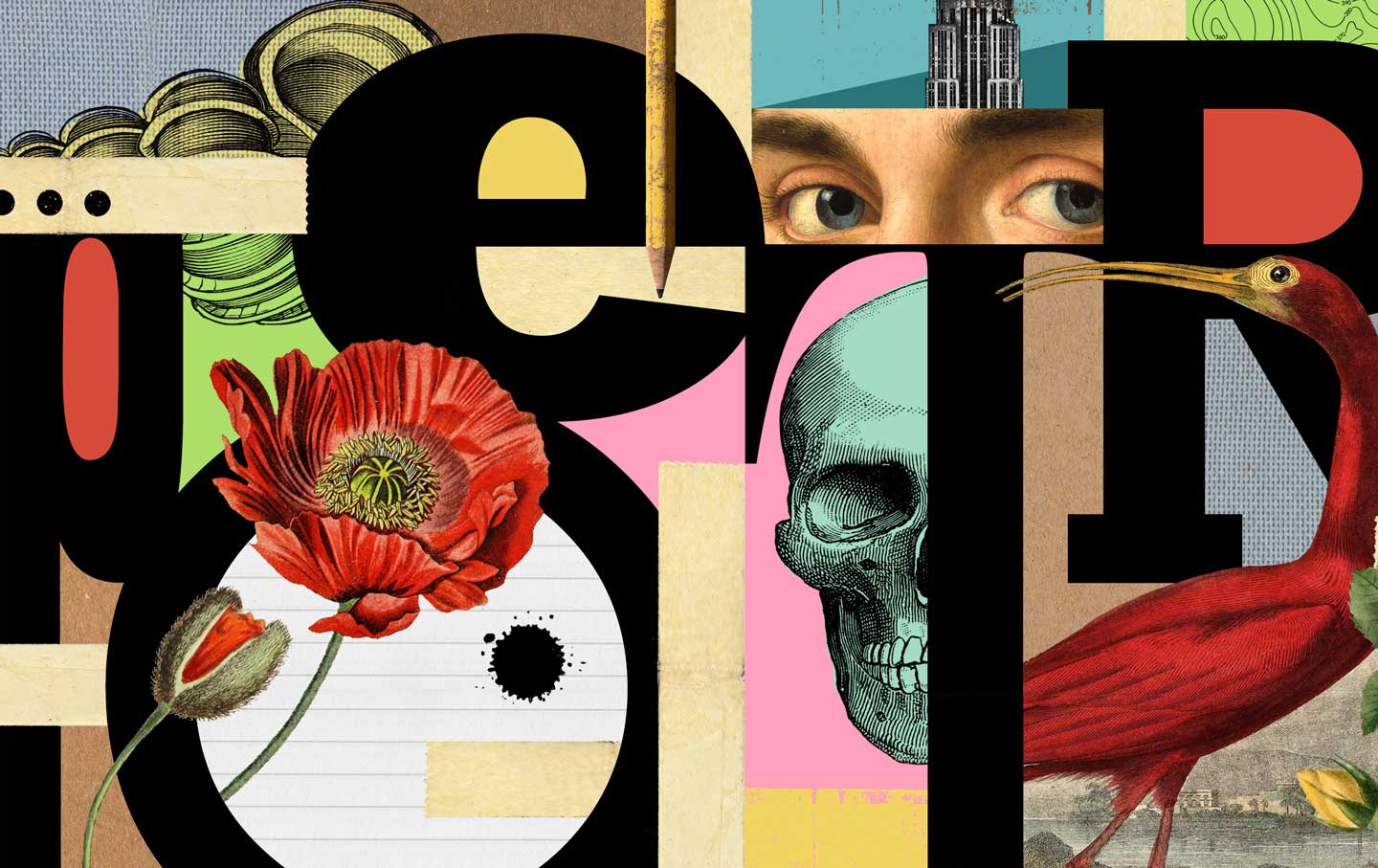Intensive Care
The interior dramas of Garth Greenwell
The Genius of Garth Greenwell
Set abroad or at home, in unfamiliar worlds an ocean away or in an intensive care unit in Iowa, Greenwell’s novels are songs of the self and of the United States as a whole.
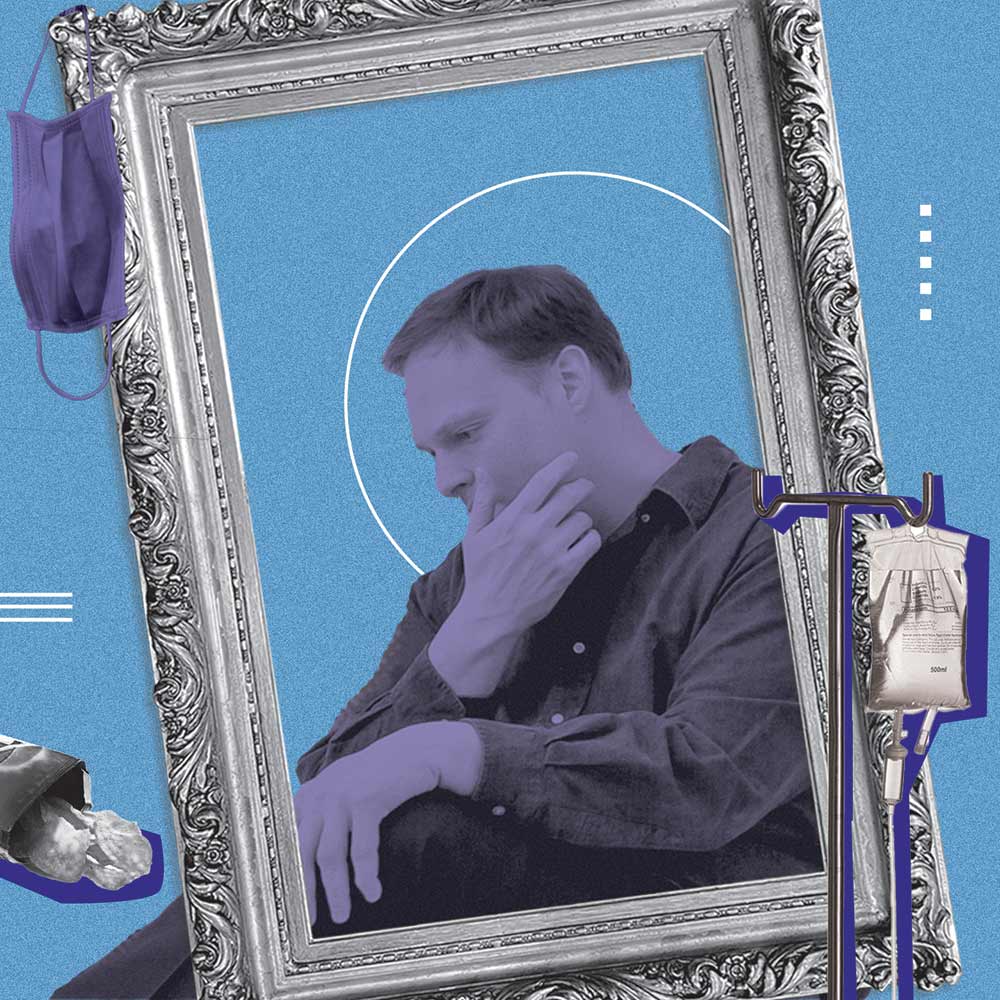
Garth Greenwell was born and raised in Louisville, Kentucky; spent his high school and university years in Michigan, Missouri, New York, and Massachusetts; and has lived in the United States for the past decade, during which time he has become celebrated for his sensuous, searching novels and short stories. Yet in the minds of his readers, Greenwell’s narrators have always lived abroad.
Books in review
Small Rain
Buy this bookHis previous two books, What Belongs to You and Cleanness, were told from the perspective of a gay man with roughly the same biography as Greenwell who teaches poetry to high school students in Sofia, Bulgaria, as the author did for a few years between earning graduate degrees. Life in Sofia affords Greenwell’s protagonists a certain liberty: While Bulgaria is their chosen home, they remain relatively unfettered by its national character, its laws and customs; their main limitation is the local language. Yet unlike the students, whom his narrators tend to depict as straining for competitive professional opportunities in Britain and America, Greenwell’s expats are free to leave any time they want.
Now, in Greenwell’s third novel, Small Rain, a similar alter ego—one with a comparable backstory and style of self-expression—is living in an ICU in Iowa during the days of the Covid lockdown. He could not be more hemmed in by America if he tried.
In Small Rain, our narrator is mostly confined to his hospital room. He reclines in bed, worries about the news, and relies on his memory, or occasionally his phone, to move the story forward. In a way, it’s not much of a view. Sometimes he sends e-mails or recalls lines of poetry. Outwardly, his habits may not differ much from those of a writer at work—or, at least, one attempting to work, but who instead fixates on anxious thoughts of his nation in morbid decline. Only the intensity of his physical suffering and the frenzy of specialists prodding him at all hours distinguish him as a patient.
The crisis that necessitated this confinement began with a sudden eruption of pain in his stomach: what the narrator describes as a fist in his gut that just keeps squeezing. Although it’s the worst pain he’s ever experienced, he tells his worried partner L, a poetry teacher at the University of Iowa, to leave him in solitude. His pride demands it, as does the immobilizing power of this pain and the fear of compounding his affliction at a hospital. “Dangerous places, in the pandemic the likeliest places to get infected,” he thinks.
In the end, he has little choice in the matter. When the excruciating pain does not subside, he drives himself to the ER and endures a long wait, dotted with bouts of intense curiosity about his fellow patients. “I wanted to see into their lives but I had no right to,” he tells us (the narrator is always carefully gauging his distance from others). Medical staff at the clinic that sent him here had suspected appendicitis, but the ER’s initial examination shows that he’s lucky to be alive at all: He has suffered an infrarenal aortic dissection, a tear in the inner lining of the aorta, a rare condition that typically occurs in elderly people (the narrator is in his 40s) and in nearly half of all cases is instantly fatal. For those who survive the first attack, the mortality rate increases significantly every hour that the sick person isn’t treated. The threat of further deterioration is reduced only by constant monitoring, painkillers, and a steady flow of antibiotics into his body, which the doctors hope will kill the infection that precipitated the tear. If there even is an infection—the truth is, nobody knows how this happened to him. To the doctors, the narrator is a thrilling question without an answer, pure diagnostic poetry.
Meanwhile, our narrator is determined to find his own kind of significance in this dire situation, and in everything around him. Not just meaning, but a pinhole view onto infinitude, or at least a Whitmanesque “multitude,” the sort of ecstatic close reading that he teaches his students to practice and that he hopes, with varying intensities of belief, can renew in some small way our openness to one another in a socially distanced world. The democratic value of deep engagement—with a text, a trifle, another person—takes on more explicitly civic dimensions in Small Rain than it has in Greenwell’s previous books, and it is one of the novel’s driving currents. Issuing elegiac warnings about the plight of America’s democratic culture, our narrator opines on mask mandates, police protests, overwhelmed medical staff, and the mind-numbing technological distractions proliferating throughout contemporary life. “It was like we had outsourced consciousness,” he laments. “Turned inwardness inside out, we thought now in other people’s memes. It made me despair for my country, not just my country, for the endeavor of humanness—something it had become impossible to think of unironically, an idea that could only be mocked.”
In other, less despairing passages, however, our narrator’s engaged readings yield songs in praise of America’s communal spirit and—when one gets right down to it—of the narrator himself. On his first day at the hospital, he forges a bond with one of his ER nurses, Frank, over their mutual love of early choral music. This exchange leads Frank to pull out his phone and play a favorite recording of the 16th-century song “Westron Wynde,” whose lyrics the narrator has taught many times to his students (and from which Greenwell draws his novel’s title). From here, the narrator considers the years he’s spent teaching the lyrics in repeated classroom settings, reconstructing moments of scholastic reciprocity that finally end in his private illumination. “The poem,” having undergone so much interpretation, “becomes not just a message but an object of contemplation, of devotion even, inexhaustible. It had been my whole life, puzzling over phrases, trying to account for the unaccountable in what art makes us feel; it had been my whole life, sometimes it had seemed a full life and sometimes a wasted one, it had felt full and wasted at once.”
Greenwell pushes his narrator’s prodigious analytic gifts and humanist sympathies to their limits in a rhapsodic—and sometimes ridiculous—passage about that most humble of American products, the potato chip. His younger sister G gives him a bag of chips toward the end of his hospital stay, his first taste of noninstitutional food after days of medically mandated fasting. Eating one, he refers to the chip as “a miracle of engineering, a kind of transubstantiation of a root vegetable.” For several pages, he lingers on the chip and the vital associations it brings forth, from the chemists who formulated it to the agricultural workers who excavated its raw materials. The chip is also taken to task for social malfeasance: “one of the manipulations of capitalism, a deformation of our natural response designed for addiction…really it symbolized in miniature the utter decadence of all genuine value, the fall of a culture, absolute bliss.” This is one complex carbohydrate.
The word itself picks up on many of this novel’s concerns: the chips in our phones, the chip on the narrator’s shoulder, the crises that chip away at our health, the hours that chip away at our lives. Of course, a potato chip can’t possibly sustain such a vivid web of impressions; it can barely sustain someone who has skipped breakfast. And yet by the end of this litany, in a move uncharacteristic of Greenwell’s previous protagonists, the narrator arrives at a dramatic resolution: We each have only a fractional capacity to face the true scale of our responsibility toward one another, he thinks. Ultimately, all we can do is “acknowledge that it’s a failure to shut our eyes to it…a failure of perception and also a moral failure; acknowledge that the only vision of life we can bear is a lie.”
This passage echoes less conclusive but more provocative ones in What Belongs to You, which, as the title aptly conveys, examines the ways we give ourselves to and withhold ourselves from one another. Throughout the novel, the narrator diligently searches for a moral boundary that he fears isn’t really there as he dissects some of his most fraught relationships. One of these is with his estranged father, who threw the narrator out of the house upon discovering his sexual orientation. Another is with a young Bulgarian sex worker named Mitko, with whom the narrator has a torrid and transactional affair. In the pair’s final meeting, Mitko, who is dying of an unnamed liver disease, asks for money so he can go home to his family, presumably for good. The narrator gives him the money and in doing so ends their relationship. Yet as Mitko is about to leave, he allows this moment of introspection: “What would it mean to do enough, I wondered, as I had wondered before about that obligation to others that sometimes seems so clear and sometimes disappears altogether, so that now we owe nothing, anything we give is too much, and now our debt is beyond all counting.”
In Small Rain, this debt to others is explored less through actions than through recollection and observation. Though the bulk of the novel is anchored to a hospital bed, the storyline is agile and often retrospective. There are many wonderful flashbacks to the narrator’s life with L, especially the scene of their first meeting, and plenty of interactions with medical professionals, episodes the narrator recounts almost as if they were biblical parables. Everyday miracles ensue, such as the instinctive kindness of a nurse named Alivia (“alleviate, allegory, alive, I thought”) and the wrath of an insolent nurse with a smile of “Midwestern confidence and cheer,” who neglects the narrator even as his vitals spike.
We couldn’t be farther from the genial fatalism of people appearing on their fire escapes to clap for healthcare workers or the cynical chest-puffing of Covid deniers. Instead, these scenes gesture at what might have been transformational about our months in lockdown: not just the death and the pain, but the possibility of turning away from despair to face that death and pain together. It is enraging to know that, four years after the period in which this novel takes place, this country is footing the bill for the systematic destruction of hospitals full of patients and healthcare workers in Gaza. It is impossible to read these passages from Small Rain, which go into such raptures of detail on the intricacies of care work, and not think of the bond between medical worker and patient as a kind of sacred trust, subject to all manner of violation and redemption. In these pages, the hospital is a laboratory of giving and withholding—and of grace.
The narrator of Small Rain, like all of Greenwell’s narrators, is fond of refining the thing he has just said, turning his thoughts over like a penny in a washing machine until they glisten or deform. Reflecting on his upbringing, the narrator says, “There was nothing in that house but violence, no love, only violence, or if there was love there was only baffled love, curdled love.” His sentences make their own logic; sometimes they make their own clichés (“or so it seemed to me”). What’s remarkable about these sentences, though, are the firm limits they place on the narrator’s self-awareness. He will correct the thought he’s just had, but never the style in which it was conveyed. Earnest, rigorous, withdrawn, turned on, forgetful, irate—the narrator brings the entirety of himself to every choice he makes and thought he has. It is both tremendously willful and generous, this constant going back over things and revising, usually without privileging one thought over another or separating the clean from the shameful.
In Small Rain, the sentences retain the alluring patter of Greenwell’s earlier books, but the narrator’s preoccupation with the framing of his material feels new, or at least raised to a new intensity. The narrator spies a sparrow outside the window of his hospital room and thinks for many pages about a short George Oppen poem about a sparrow. He proposes in the course of this rumination that the “power of the frame” is to “make a boundary within which we can establish that relation that is the only acceptable relation, in which we can see all that there is to see and feel all that there is to feel, which is what makes me think that the disciplined attention of art is a moral discipline, even when the content of that morality isn’t obvious.” The boundary can contain a sparrow, a potato chip, or another person. He compares this state of heightened sensitivity to the effect of a Cézanne painting, “the hundreds of strokes he makes, each an act of seeing, a judgment, each an attempt to activate in us that awareness we nearly always shut down.”
Popular
“swipe left below to view more authors”Swipe →In the context of the novel, though, it is doubtful whether this explicit search for better, or tighter, or more suitable frames helps the reader view the world anew. Sometimes all one wants is the painting itself; the hundreds of judgments that have already been made in pursuit of an artistic vision can stand alone without these indulgent moments of gilded thesis-making. And yet these frames are also of a piece with the ambition that suffuses this great American novel: to gaze unflinchingly upon everything, to drench each subject with the narrator’s looking, and thereby to make some indeterminate lesson of it.
At times, there seems to be nowhere that Greenwell’s storytelling can’t reach. It is more than capable of holding a reader suspended in longing, horror, or affection, all without explaining its own inner workings. There is an astounding scene in one story in Cleanness in which the narrator covers every inch of his lover’s body with kisses. Like the lover, the reader feels lavished with attention in a way that’s embarrassing, and exquisite. In another we get an even more unbridled image, of the wind rattling through their room: “It was moving the very lands, I thought, however slowly, nothing was solid. I thought of the distance from which it had come, though maybe it doesn’t make sense to think of it has having any origin at all.”
The best of Greenwell’s writing brings to mind an overflowing container, a surfeit of emotion and insight that is not wasted despite having exceeded its limit. “Small rain,” indeed; there is nothing humble about it. Even sentences as expansive as these can’t entirely capture the fluid trajectories of these passions as they fall, or perhaps fly, toward their ordinary conclusions.
More from The Nation
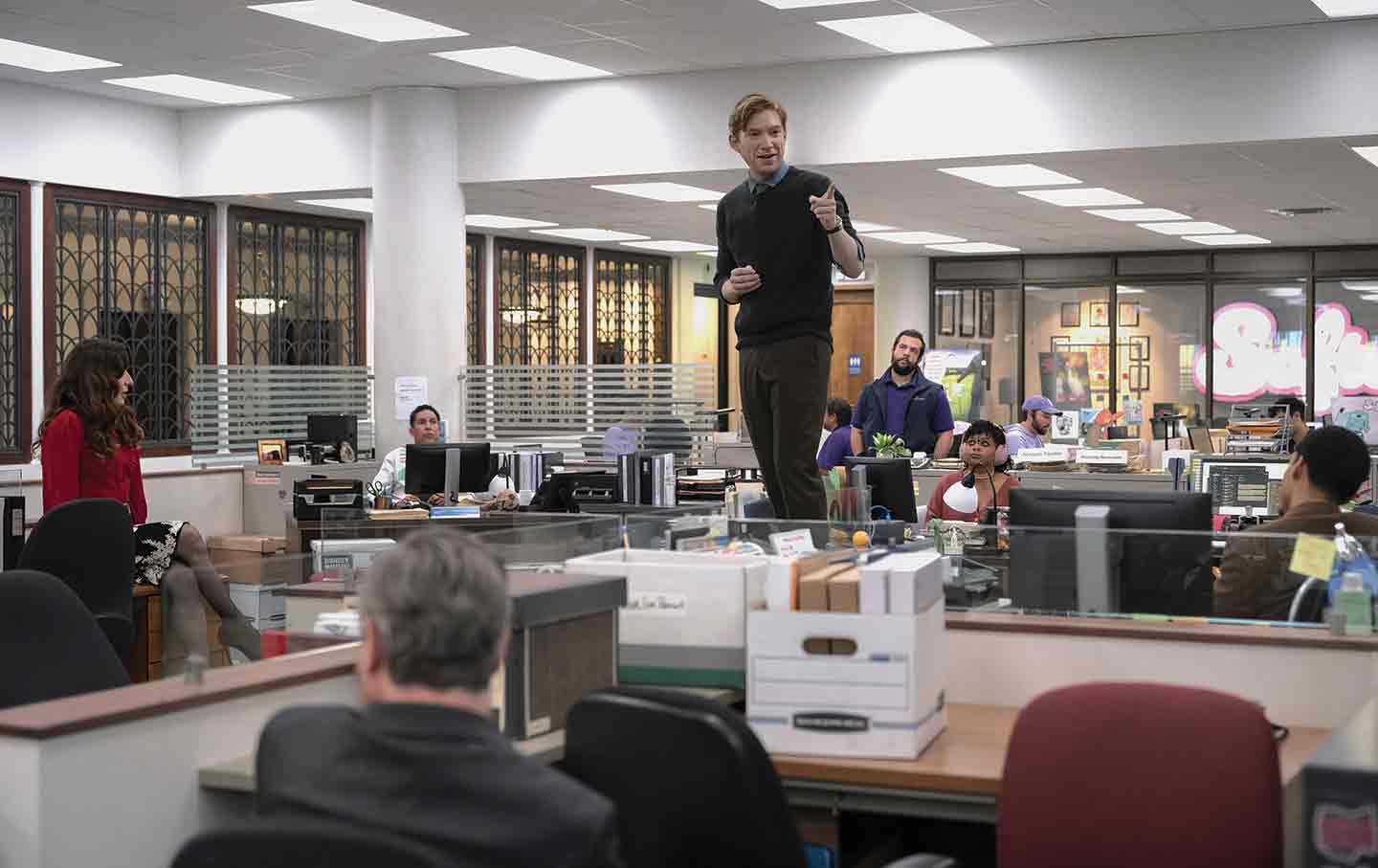
“The Paper” and the Return of the Cubicle Comedy “The Paper” and the Return of the Cubicle Comedy
The new show from the creators of The Office reminds us that their comedic style does now work in every “workplace in the world.”
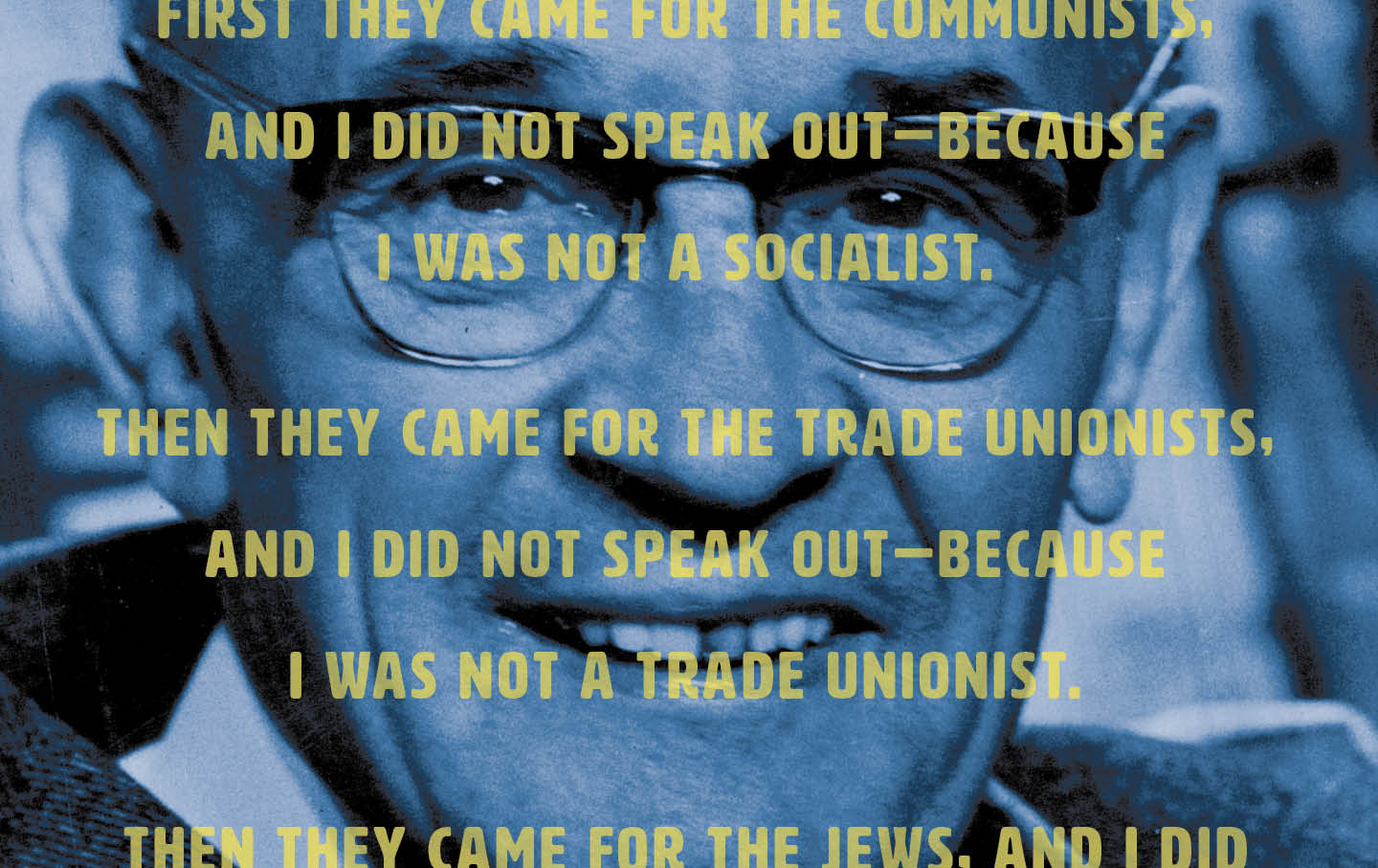
The Strange Story of the Famed Anti-Fascist Lament “First They Came…” The Strange Story of the Famed Anti-Fascist Lament “First They Came…”
In his celebrated mea culpa, the German pastor Martin Niemöller blamed his failure to speak out against the Nazis on indifference. Was that the whole reason?

The Grand Delusions of “Marty Supreme” The Grand Delusions of “Marty Supreme”
Josh Safdie’s first solo effort, an antic sports movie, revels in a darker side of the American dream.
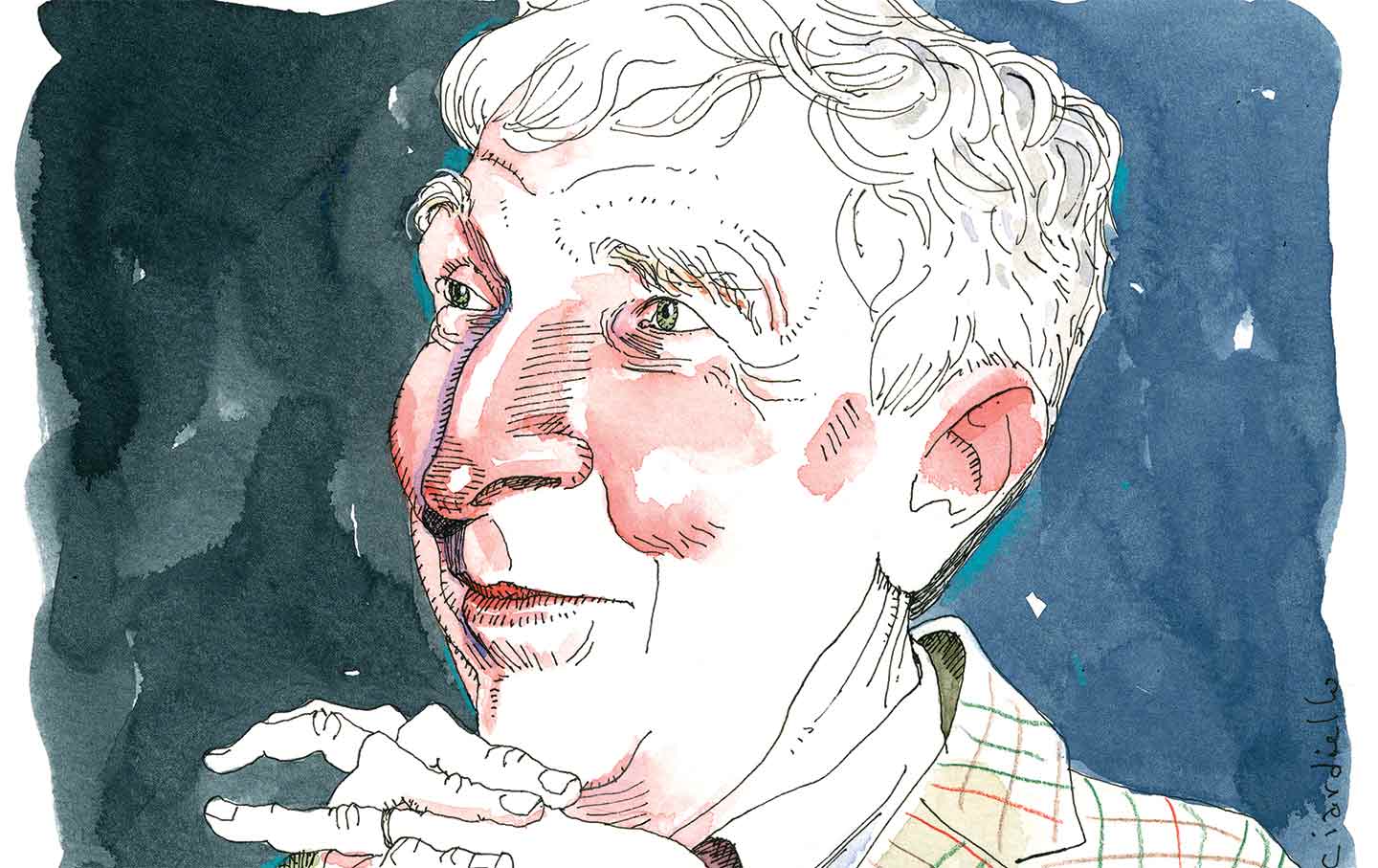
John Updike, Letter Writer John Updike, Letter Writer
A brilliant prose stylist, confident, amiable, and wonderfully lucid when talking about other people’s problems, Updike rarely confessed or confronted his own.
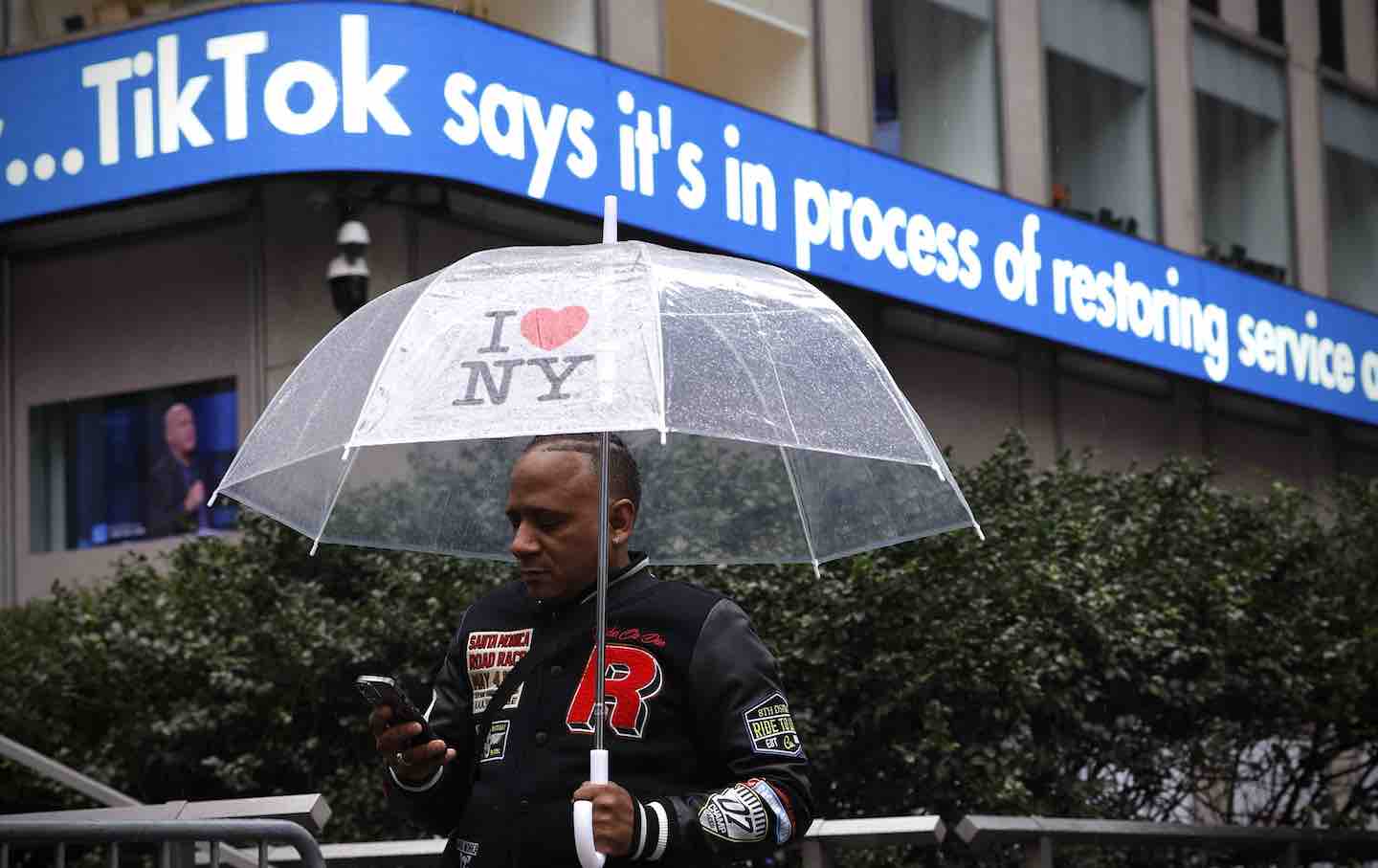
TikTok’s Incomplete Story TikTok’s Incomplete Story
The company has transformed the very nature of social media, and in the process it has mutated as well—from tech unicorn to geopolitical chesspiece.

